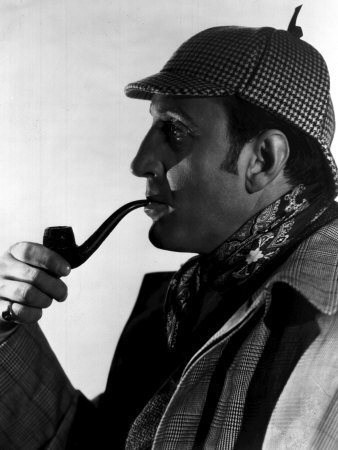
Dr. Hurd: In your recent article, “When Noises Drive You Mad”, [Daily Dose of Reason 1/29/13] the questioner was angered by hearing others eat. Could he be affected by an unconscious memory of people eating (leaving no food for him) while he was extremely hungry? I was surprised that you did not even mention this possibility.
Reply: Your question implies two assumptions I do not share.
One, that there’s such a thing as the “unconscious” as opposed to the subconscious mind. I maintain, as I described in “Bad Therapy, Good Therapy,” that there is no such thing as a Freudian “unconscious” completely divorced from the conscious mind. In fact, the subconscious mind obtains information, including memories, of things that once were conscious. It’s an important distinction, because if you maintain that there are unconscious processes driving and determining us — over and above what was at one time conscious — then you’ve entered the pseudoscientific equivalent of the supernatural.
The second assumption you imply is that memories can determine an emotion. It’s not memories that determine the content of our emotions. It’s our ideas, thoughts and underlying assumptions. I’m frankly surprised — if you’re even an occasional reader of my columns or book — that you’d think I’d buy into this.
You’re suggesting, in your question, the following thing: “An unconscious memory of not being fed when hungry as a child leads to an intense dislike of noise, especially the sound of others eating, later in life.”
I’d like to hear by what means one is to go about proving this. Who on earth could possibly remember how they were responding to things back in infancy or early toddlerhood? How is one to separate projections made from your adult cognitive perspective from the way it honestly and actually looked to an infant or toddler?
But for the sake of argument, let’s assume we somehow can resolve that. Yes, let’s assume the person asking the question can remember those experiences from very early in life. What’s to be done about that now? It doesn’t really matter who did what way back then. All that matters in the present is that you have a belief that noise is more bothersome, or more of a threat to your existence than it really is. You have to find a way to cope with this cognitive distortion, and alter it if possible.
Your mistake lies in assuming that answering the question, “Where did it start?” will lead to a conclusion of “How to fix it now.” How disillusioned the poor therapy client will be, if after spending years of piecing together fragments of memories, he discovers that he still has no clue of what to do about his problem.
You’re falling into the trap that Freudian psychology created, and the trap that many laypeople fall into, as well. You’re accepting, without question, that if we can just piece together the events leading up to that initial annoyance of being hungry at age one, four, or six — why then, we’d be on our way to a solution in the present. How so? Decades of research on psychoanalytic and psychodynamic (i.e. Freudian) therapy proved little to no difference between engaging in that therapy versus doing nothing. Such thinking builds up false hopes. It assumes that if you can succeed at being the mental or psychological equivalent of Sherlock Holmes the detective — why then, you’ve got your cure.
It doesn’t work that way. Someone could go to a therapist and say, “I’m afraid of horses. I know why. I had a traumatic experience with a horse when I was four. I remember it clearly.” Knowing the history of where and when it started doesn’t give any guidance on how to address it in the present. The same applies to rotten treatment by toxic parents earlier in life.
The relevant question here is not probing or unearthing every lost or “repressed” memory. The challenge is to discover what assumptions, ideas and attitudes were formed about life and relationships during that time, and how those beliefs are manifesting today … and how rational or true those beliefs actually are.
This is the crucial difference between a cognitive-behavioral approach to therapy and a psychodynamic one, which is the one you’re (knowingly or not) referring to when you asked me your question.
You’re surprised that I’m not falling for that Sherlock Holmes, “If we can just unlock all the memories, then we’ll unlock the cure” fallacy. If you know even a few things about what I’ve been writing all these years, I’m even more surprised that you’re surprised.
Be sure to “friend” Dr. Hurd on Facebook. Search under “Michael Hurd” (Rehoboth Beach DE). Get up-to-the-minute postings, recommended articles and links, and engage in back-and-forth discussion with Dr. Hurd on topics of interest.
